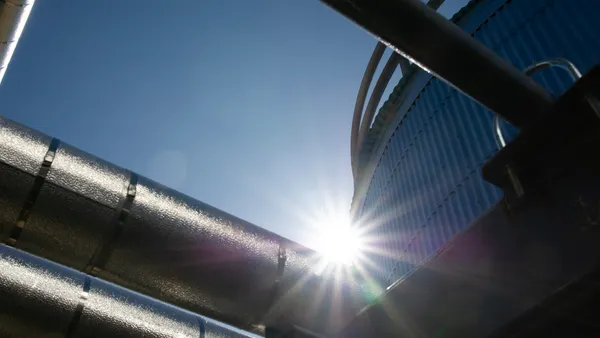Dive Brief:
- The Miami Herald reports Florida Power & Light helped write changes to a bill aimed at accelerating the growth of solar in the Sunshine State, proposing restrictions and disclosures some say could have a chilling effect on the growth of the distributed resource.
- Last year voters in Florida overwhelmingly approved a ballot initiative to eliminate property taxes on solar panels installed at commercial and industrial facilities. But the legislation to enact that decision is being weighed down with new regulations that will have the opposite impact, say solar supporters.
- Rep. Ray Rodrigues (R) proposed consumer protections to require about 20 disclosure forms and changes to how savings are calculated. HB 1351 this week was advanced by the House Ways and Means Committee.
Dive Insight:
Florida voters approved Amendment 4 with almost 75% in favor last August, opting to nix property taxes on solar panels installed at some sites. It was the first of two votes last year, where the state's residents affirmed their support for growing solar energy.
But while both legislative chambers are working on legislation to enact Amendment 4, the Miami Herald reports FPL has been able to introduce some changes to the House's measure.
According to the Herald, in January Rodrigues accepted a $15,000 contribution to his political committee from FPL, and a smaller donation from Tampa Electric. Days later, he floated language proposed by FPL parent NextEra Energy to add restrictions to the bill.
A staff lawyer reportedly analyzed the language and told Rodrigues, "this could be a huge barrier" to expanding solar access. The lawmaker in March then submitted the utility company's language as an amendment to more than a half dozen sections of the bill, according to the Herald.
Rodrigues' proposals would mean that if a solar agreement contains an estimate of the buyer's or lessee's future utility charges based on projected utility rates after the installation of a system, the solar company must "provide an estimate of the buyer's or lessee's estimated utility charges during the same period as impacted by potential utility rate changes ranging from at least a 5-percent annual decrease to at least a 5-percent annual increase from current utility costs."
In addition to the August ballot measure, Florida voters in November also rejected a measure that would have ensured third-party ownership of rooftop solar systems remained illegal in the state.
FPL and the state's other utilities threw their financial support behind the initiative, which was launched to counter a separate ballot proposal from solar advocates that would have allowed third-party ownership.
The utilities say they would rather add solar energy through central station arrays than facilitate the growth of distributed systems. FPL this week announced plans for 1.5 GW of new utility-scale solar, on top of 600 MW of additions previously planned.














